Xiaomi's AI Glasses: A Potential Breakthrough in the Mass Market
![]() 06/30 2025
06/30 2025
![]() 584
584
Xiaomi may not be the best, but it certainly won't disappoint.
In recent days, Xiaomi has undeniably become the center of attention in the AI glasses market.
On June 26, Xiaomi unveiled a range of products at its latest press conference, including flagship smartphones, tablets, wearable devices, AI home appliances, Xiaomi YU7, and the inaugural Xiaomi AI Glasses priced at "1999 yuan".
Among the many new, high-profile products, Xiaomi's AI glasses garnered attention second only to the YU7. Behind this success lies the momentum of the YU7, but more importantly, it ignites long-suppressed industry expectations.
Over the past two years, the AI boom has intensified, with every smart terminal redefining itself, from AI smartphones to AI PCs. Meanwhile, the once dormant market for smart glasses has been reinvigorated by Ray-Ban Meta and AI. Since then, domestic smart glasses manufacturers like Rokid, LeTV, and Liweike have continuously launched new products, showcasing a diverse range of smart glasses with varying functional forms and product positioning.
However, major smartphone manufacturers have been notably absent from this carnival. Xiaomi's entry into the market breaks this silence.
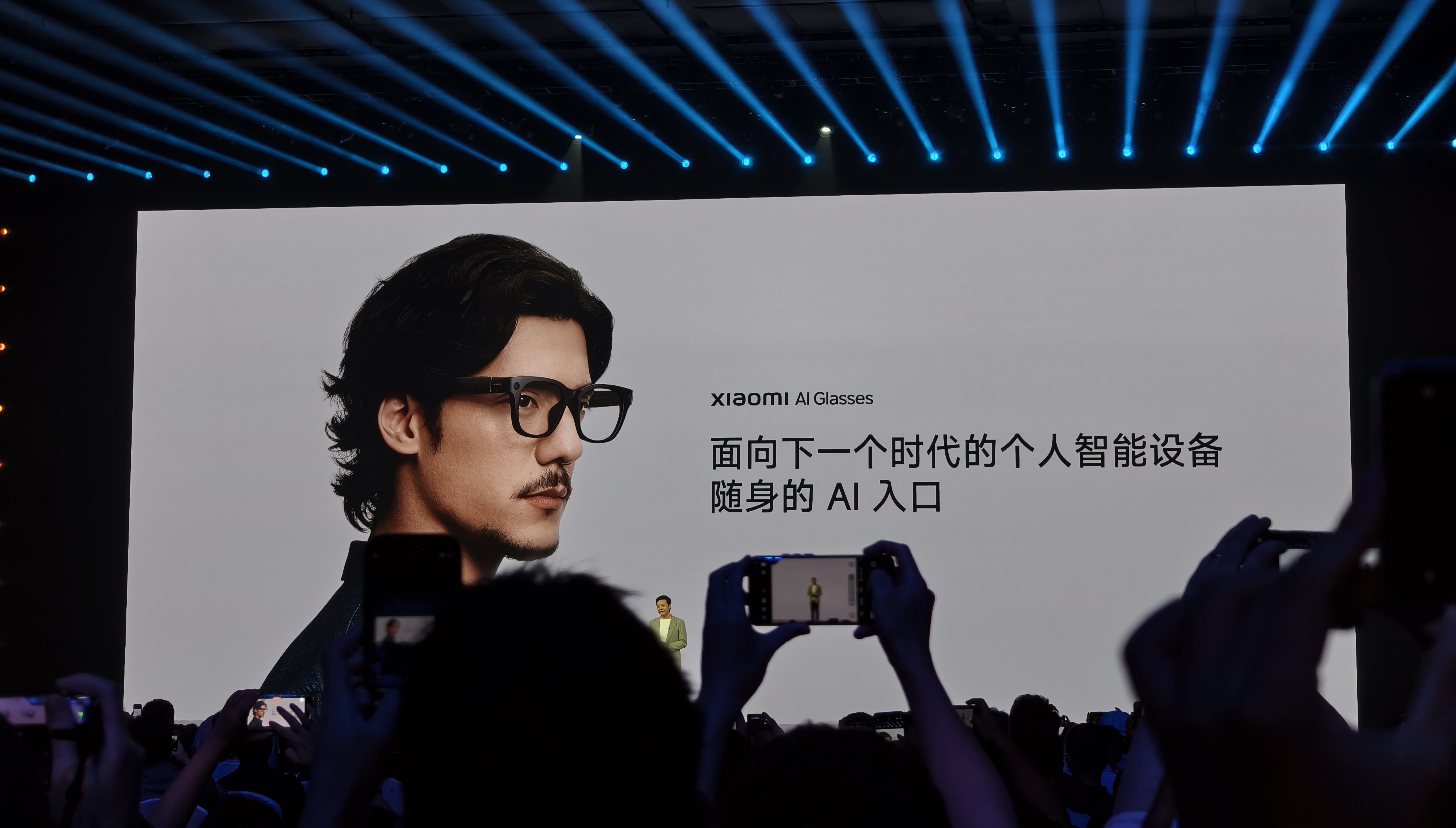
Press conference scene, Image/LeiTech
For average consumers, they are not seeking a futuristic gadget costing several thousand yuan but a "normal electronic product" that they can wear outside, take photos, listen to music, and make phone calls with. Ideally, it should be familiar, affordable, repairable, and come with readily available after-sales service—precisely Xiaomi's advantage as a major smartphone manufacturer.
For industry insiders, Xiaomi's entry signifies validation of product form and user needs. Domestic players like LeTV, Rokid, and Liweike have made considerable efforts but still face challenges in technology, ecosystem, channels, and branding. Ray-Ban Meta has already been validated, but can Xiaomi turn this market into a reliable category in the domestic market? Many are eager to see.
Xiaomi's initial sales figures for its glasses have lived up to expectations: sales on Xiaomi's JD.com self-operated flagship store exceeded 9,000 units on the launch night, with the electrochromic version selling out immediately. Discussion on social platforms continued to climb, with numerous bloggers sharing their experiences on Bilibili, Xiaohongshu, and Douyin, even those who "never wear glasses" were willing to give it a try.
However, hands-on experiences, including LeiTech's, have pointed out some critical issues with Xiaomi's AI glasses. Coupled with subsequent sluggish sales on e-commerce platforms, sales on Xiaomi's JD.com self-operated flagship store remained at 10,000+ as of June 28 evening (the third day of sales).

Image/Xiaomi
This raises concerns: Can Xiaomi's AI glasses truly break the "dead on arrival" curse and achieve a breakthrough in the mass consumer market?
What exactly are Xiaomi's AI glasses?
While smart glasses a few years ago primarily integrated open headphones into traditional optical glasses, today's AI glasses based on generative AI are more complex in terms of product concept, form, and positioning. Broadly, current AI glasses products can be categorized into three types: AI audio glasses, AI camera glasses, and AI display glasses (or AI+AR glasses).
AI audio glasses focus on audio, emphasizing extreme lightweightness, AI voice interaction, and wireless headset experience, exemplified by Jierhuan AI audio glasses and Liweike City. AI camera glasses often add cameras, supporting first-person-view photography, video recording, and sharing visual capabilities with AI, represented by Ray-Ban Meta, Xiaomi AI glasses, LeTV V3, Liweike View, etc.
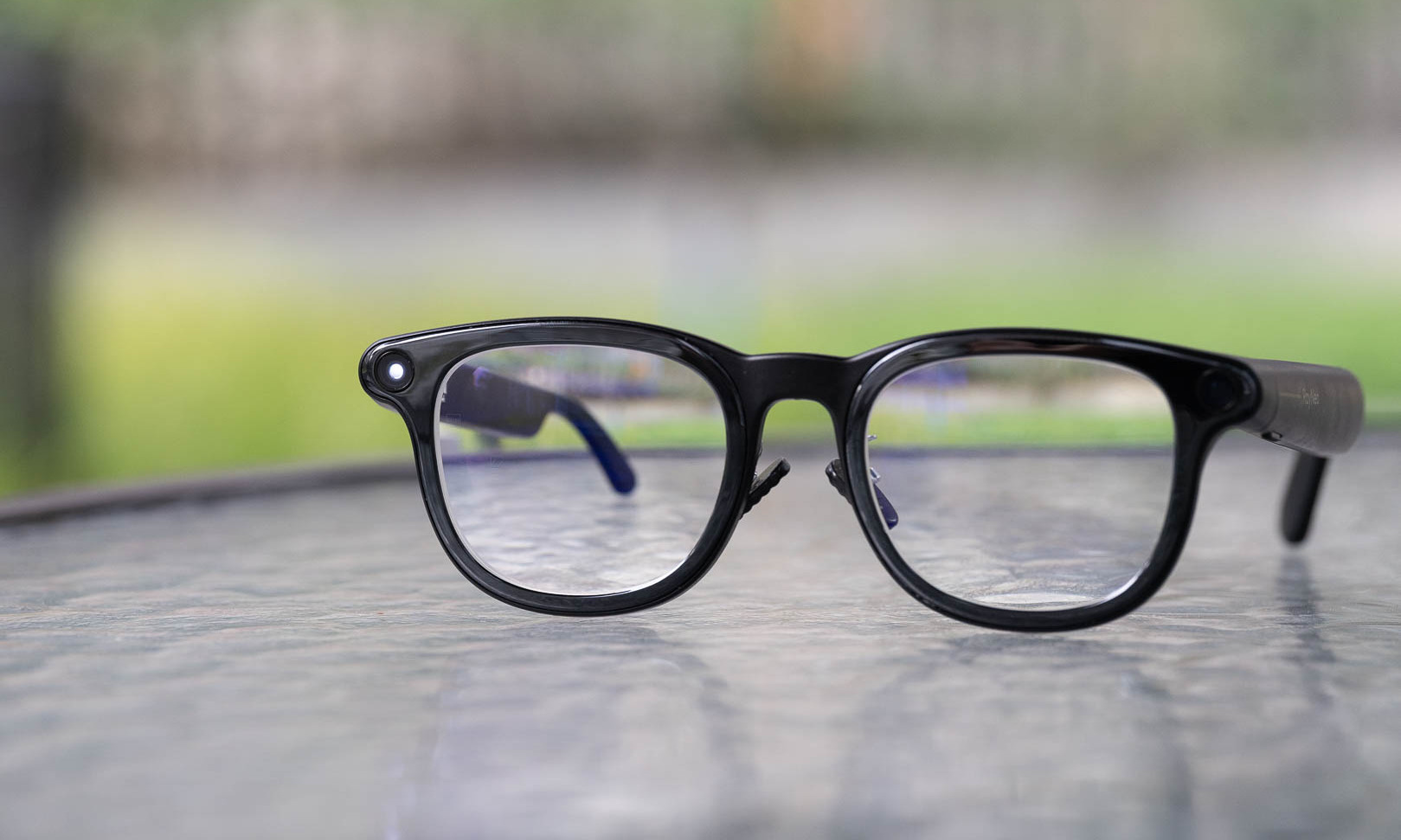
LeTV V3, Image/LeiTech
AI display glasses, on the other hand, superimpose micro displays, providing visual feedback and interactive capabilities, such as INMO GO2 and Meizu StarV View. However, there are also products like Rokid Glasses that integrate headphones, cameras, and micro displays.
Xiaomi's AI glasses clearly fall into the category of AI camera glasses. The core proposition of this type of product is balancing the practicality of audio, photography, and AI functions while maintaining a lightweight form factor suitable for daily wear. Xiaomi's AI glasses are commendable in terms of functionality and system completion.
Firstly, it is currently one of the few AI camera glasses that strikes a good balance in audio experience, shooting performance, and battery life. LeiTech noted in its hands-on review that the glasses performed exceptionally well in speaker sound quality and microphone call clarity. While the shooting performance is not outstanding, it is stable and usable overall.
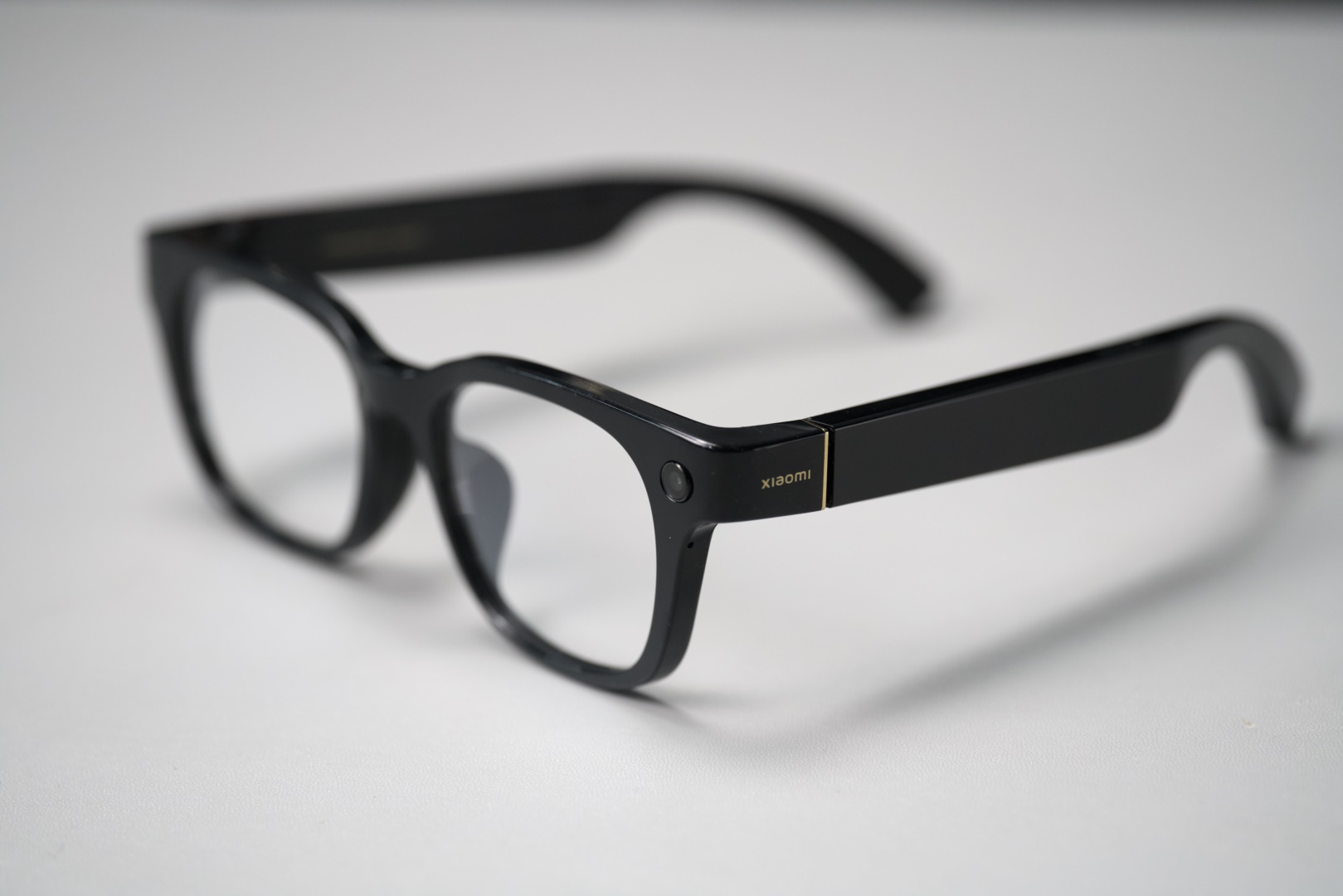
Xiaomi AI Glasses, Image/LeiTech
Most importantly, battery life—with a 263mAh battery and a dual-chip solution, the official claim is 8 hours of use, and actual tests show that even after 3 hours of high-intensity use, there is still 40% battery left.
Secondly, Xiaomi's AI glasses demonstrate the obvious system integration advantages of a major manufacturer. Phones running Xiaomi's Pengpai OS can directly use the glasses' camera for live streaming or even switch to the glasses' perspective during video calls on Xiaomi phones. This level of hardware collaboration is challenging for other current AI glasses to replicate.
As for AI, Xiaomi's AI glasses are more of an "extension" of Xiao'ai Classmate's functions, including controlling smart home appliances, identifying food calories, and voice translation, etc. Compared to other AI glasses, it may only have an advantage in controlling Mijia devices. Additionally, the pricing is not "stunning" and is consistent with that of LeTV V3 (with a rechargeable glasses case).
Benchmarking Ray-Ban Meta, the biggest issue is being "unfashionable"?
Xiaomi has made smart glasses before; earlier this year, it also launched the 999 yuan Mijia Smart Audio Glasses 2, but this is the first time under the "Xiaomi" brand. Xiaomi's approach to AI glasses aligns well with its brand: directly benchmarking the best-selling Ray-Ban Meta, replicating its AI camera glasses product form, and maintaining certain advantages in battery life and functionality.
After all, Ray-Ban Meta has already been successfully validated in overseas markets, demonstrating the absolute advantages of AI glasses over past AR glasses in "lightweight wearing" and "lightweight interaction" in daily use, as well as the potential of integrating a first-person-view camera for enhanced user experience and AI capabilities.

Ray-Ban Meta, Image/Xiaomi
For Xiaomi, this model fits well with its product philosophy: reducing risk with mature solutions and differentiating the experience. Hence, we see this Xiaomi AI glasses following the product route of Ray-Ban Meta-style AI camera glasses.
Xiaomi obviously hopes to replicate the success of Ray-Ban Meta. However, beyond advantages in battery life and mobile phone integration functionality, Xiaomi's AI glasses still have many issues. One of the biggest problems may be its design and wearing experience, as pointed out in LeiTech's hands-on review, with thick temple pieces, USB-C charging, and not very comfortable wearing.
Furthermore, Tencent Tech invited many people to try Xiaomi's AI glasses test prototype, and over 70% of testers' primary negative feedback focused on: the design is not refined and not fashionable.
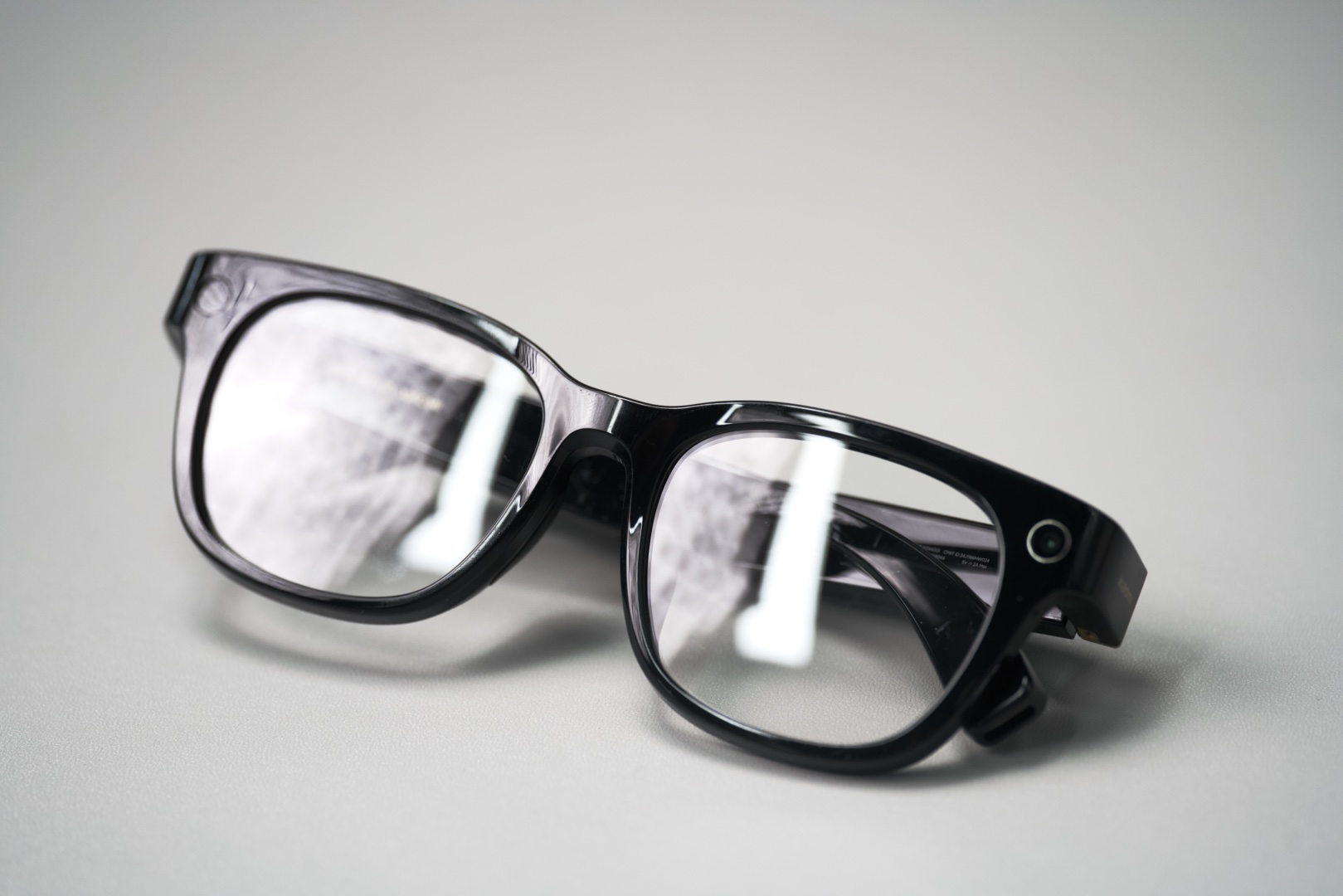
Xiaomi AI Glasses, Image/LeiTech
This was also LeiTech's feeling after the actual experience, especially when compared to LeTV V3, released earlier this year, the difference in design from the frame to the temple pieces is quite obvious. Even when compared to the Ray-Ban Meta released in 2023 (adopting the classic Ray-Ban design), Xiaomi's AI glasses appear rough in design.
Both Ray-Ban Meta and LeTV V3 have proven the importance of first doing a good job of the "glasses" part at this stage. Including Rokid Glasses, which just came off the production line a few days ago and is ready for delivery, also emphasizes making a "pair of glasses" first.
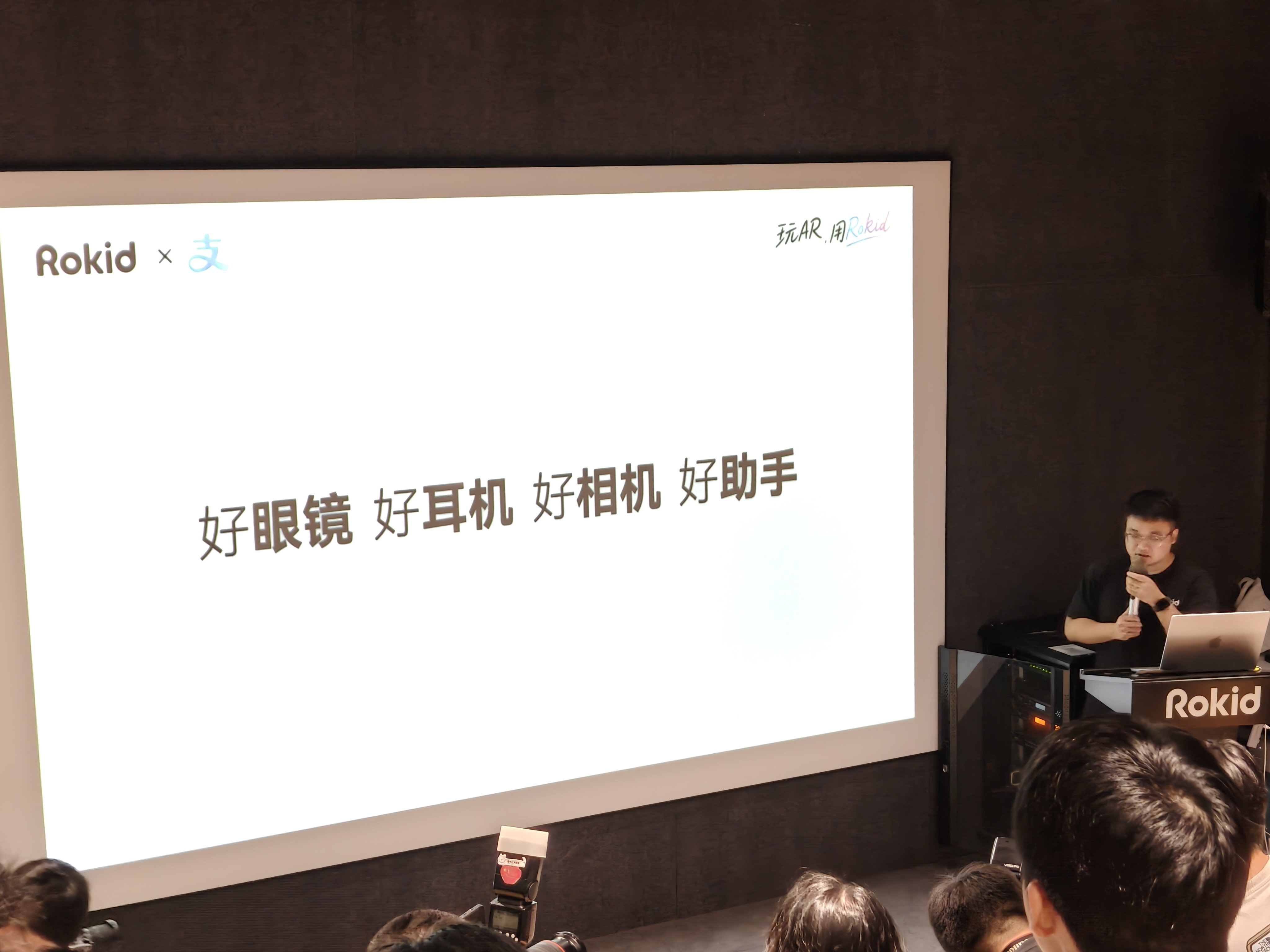
Rokid Glasses Product Manager Sharing, Image/LeiTech
Xiaomi may not define AI glasses, but AI glasses cannot do without Xiaomi
It must be admitted that as a product, my evaluation of the first-generation Xiaomi AI glasses is not high. The wearing experience is not very comfortable, the design is not fashionable, the AI functions are not very deep, and it is more like an "usable, adequate" but not groundbreaking early version. It does not have the ability to redefine this category.
Nevertheless, it is still the most noteworthy "official entry" into the AI glasses market. The reason is simple: Xiaomi's entry gives AI glasses a real opportunity to transition from a niche product for tech enthusiasts to a mass-market consumer product.
In today's Chinese consumer market, Xiaomi represents a special kind of product trust mindset—"reasonable price, comprehensive functionality, not poorly made". Especially for those who have been observing the smart glasses market for a long time, this trust is almost a prerequisite: not that they don't want to try, but they dare not touch it.
Xiaomi's entry is like pressing the test button for them. Many consumers think: I've wanted to try AI glasses for a long time, and finally, a major manufacturer has stepped in. With a starting price of 1999 yuan, 8.6 hours of typical usage battery life, and some fun tricks when paired with its own smartphones, it's not stunning, but it's safe enough. This explains the impressive initial sales figures and the rapid spread of numerous experience videos and reviews on social platforms.
Moreover, Xiaomi's nationwide stores can serve as both a complete sales and dispensing channel and an important window for product promotion and user education. In this regard, Xiaomi has more reach than any startup.

Image/Xiaomi
Leveraging Xiaomi's store influence can also allow more ordinary consumers to truly experience and recognize AI glasses as a product.
Furthermore, Xiaomi's entry into the market signifies a potential large supply chain demand, sending clearer signals to segments such as lenses, camera modules, batteries, and chips—AI glasses are no longer just an "experiment" for AR companies and AI startups but have the potential to become a new hardware mainstay. This is good news for the entire industry chain and a practical push for technological solutions.
Of course, AI glasses brands may have mixed feelings about Xiaomi's entry. On one hand, they need to be vigilant about the price impact that may come with the "cost-effective giant" once it goes into mass production; on the other hand, they are also pleased to see Xiaomi educate the market, raise users' awareness of this new category, and even bring more attention and investment.
In conclusion, Xiaomi's AI glasses may not be the strongest, coolest, or most innovative, but it may still be a crucial node for AI glasses to truly "break out". This is significant enough.
Xiaomi AI Glasses, LeTV, Rokid
Source: LeiTech







